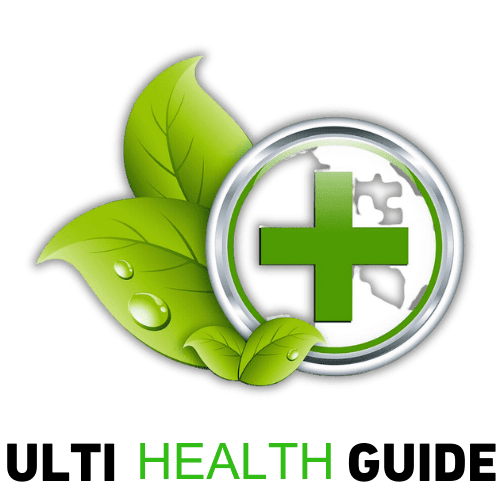u003cstrongu003eu003cstrongu003eWhy Do You Need Vitamins For Vaginal Healthu003c/strongu003eu003c/strongu003e?u003cbru003eu003cstrongu003eA healthy diet is essential for maintaining vaginal and overall reproductive health. u003c/strongu003eVitamins and minerals are essential nutrients required for numerous bodily functions, including keeping the vagina healthy.
Vitamins For Vaginal Health
- Vitamin E
- Vitamin D
- Vitamin C
- Omega 3 Fatty Acids
- Probiotics
- DHEA Supplements
- Hyaluronic Acid
- Sea Buckthorn Oil
- Cranberry Supplements
Vaginal health is part of a woman's overall general health. But many women do not realize that some specific vitamins and minerals can help maintain vaginal health and prevent vaginal infections. Here is a list of the 9 best vitamins for vaginal health.
Vitamin E

As explained in Vitamins How They Work And Their Sources, as a fat-soluble vitamin, vitamin E is essential for overall health and has been shown to have strong antioxidant properties. It's also been found to help increase lubrication and reduce vaginal dryness, according to some studies.
Using a vitamin E suppository in 52 postmenopausal women for 12 weeks improved symptoms of vaginal atrophy. Vaginal atrophy is a type of vaginal thinning and dryness that affects the walls of your vagina. [1][2]
Suppositories containing vitamin E, hyaluronic acid, vitamin D, and vitamin A could improve symptoms of vaginal atrophy in women undergoing radiotherapy. Vitamin E suppositories were also confirmed to successfully treat vaginal atrophy in women with breast cancer. [3] [4]
Despite these encouraging findings, more study is needed to determine how vitamin E can be used to enhance vaginal health in addition to being administered as a suppository. However, incorporating a dietary source of vitamin E into your diet is an easy way to ensure you're getting all of its antioxidant advantages. Some good sources of vitamin E include nuts, seeds, olive oil, and avocados.
Vitamin D
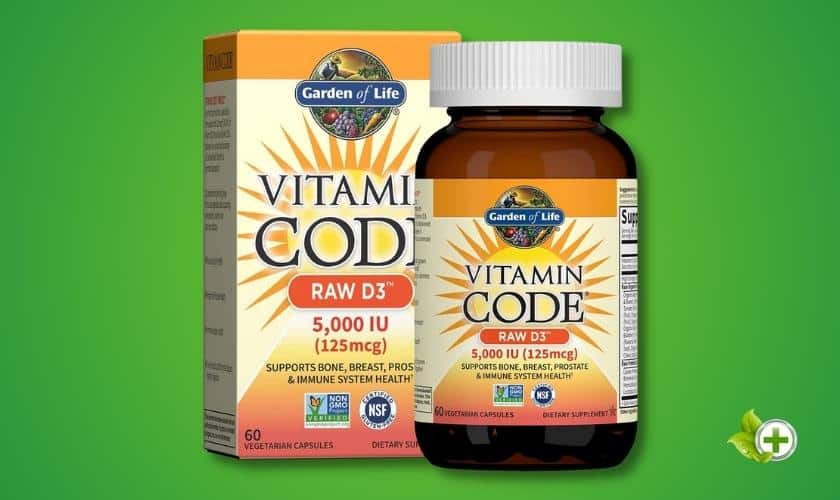
Women can experience decreased estrogen levels as they age, leading to vaginal dryness and other health concerns. Vitamin D is a suggested supplement to help offset some of these issues.
Studies have shown that vitamin D plays a role in vaginal health, specifically regarding vaginal ph balance, moisture, and lubrication. According to the study, vitamin D may be obtained via the skin or taken orally in pill form.[5]
Some researchers believe that vitamin D may work best when used topically through a vaginal suppository. The effect of vitamin D on vaginal atrophy in postmenopausal women found that Using vitamin D suppositories daily for eight weeks significantly reduced vaginal dryness compared to a control group.[6]
Vitamin D levels in the blood were significantly linked to more excellent moisture and consistency in women's vaginas. Therefore, while more research is needed, vitamin D seems beneficial for improving vaginal health, especially as women approach menopause. But understanding the balance of nutrients is crucial, as highlighted in the article Too Much Vitamin B12 Supplement.
You can buy Vitamin D supplements or obtain them through foods like fish, eggs, and dairy products. Daylight is also a good source of vitamin D. It is also available in supplement form.
Did You Know? Well known as Sunshine Vitamin, Vitamin D is also associated with several other health conditions such as kidney disease, liver disease, pregnancy, and breastfeeding. Vitamin D deficiency can make you sick with several severe health conditions. Learn about Vitamin D deficiency from Everything You Need to Know About Vitamin D Deficiency And Neurological Symptoms.
Vitamin C

Ascorbic acid, also known as vitamin C, is a water-soluble nutrient commonly found in fruits and vegetables. It is essential for various bodily functions, including immune system support, tissue repair, and collagen production. There is some evidence that ascorbic acid may also be helpful in the prevention and treatment of bacterial vaginosis.
Bacterial vaginosis is a severe infection of the vagina caused by an overgrowth of harmful organisms. It is among the most common vaginal infections in women of childbearing age and can cause several symptoms, including itching, burning, and abnormal discharge. Bacterial vaginosis can often be treated with antibiotics, but there is a risk of recurrence. Women's health encompasses various aspects, including menstrual health. [6] For insights into related topics like ovulation, consider reading Ovulation Bleeding.
A study published in the National Library of Medicine examined the effect of the regular use of 250 mg ascorbic acid (vitamin c) vaginal tablets on the risk of recurrence of bacterial vaginosis. The study found that women who took 250 mg ascorbic acid vaginal tablets six days per month for six months after successful treatment of bacterial vaginosis had half the risk of recurrence than those who did not take the tablets.
While more research is required to confirm the benefits of ascorbic acid for bacterial vaginosis prevention and treatment, this preliminary study suggests that it may be helpful. Ascorbic acid is readily available and affordable, making it a potentially good option for women looking to reduce their risk of recurrence.
Omega 3 fatty acids
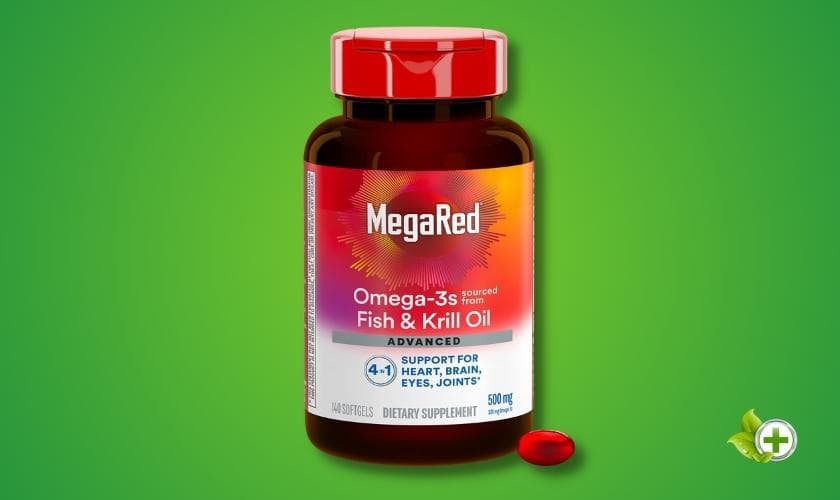
Omega-3 fatty acids are essential for human health because they are unsaturated fat. They are found in foods like fish, nuts, and seeds. They have been shown to have many health benefits, including reducing the risk of heart conditions, improving cognitive function, and reducing inflammation.[7]
Omega-3 fatty acids have also been shown in recent studies to help women increase their lubrication, especially during menopause. Omega-3 fatty acids improved self-reported vaginal dryness for 52 postmenopausal breast cancer survivors. [8]
Vitamins D and E, in addition to omega-3 fatty acids, may increase estrogen levels. Omega-3 fatty acids have also been discovered to improve skin hydration and dryness.[9] [10]
Overall, there is some evidence that omega-3 fatty acids can help vaginal health and reduce the symptoms of vaginal dryness. If you are experiencing vaginal dryness or other signs of poor vaginal health, talk to your doctor about whether omega-3 fatty acids could be a good option.
Probiotics

Probiotics are beneficial bacteria that line the intestinal tract and support optimal health. [11]According to the fact sheet, there are many different types of probiotics, each with its unique set of benefits. Recently, probiotics have been gaining attention for their potential to support vaginal health and maintain a healthy pH balance.
The vagina is a moist environment that is naturally acidic. [12]This acidic environment helps to discourage the growth of harmful bacteria and yeast. However, factors like antibiotics, hormonal changes, and stress can disrupt the healthy vaginal ph balance and allow harmful organisms to flourish. This can lead to vaginal ph imbalance and cause several uncomfortable symptoms, including itching, burning, and abnormal discharge.
Probiotics can help to restore balance to the vaginal flora by adding good bacteria strains that produce hydrogen peroxide and lactic acid. [13]These acids help to maintain a low or acidic vaginal pH which may help reduce your risk of infection. Furthermore, lactoferrin- a protein present in probiotics- has been proven to eradicate bacteria and yeast in the vagina. It is also essential for urinary tract health.
Probiotic supplements may be a helpful treatment option if you are experiencing symptoms of vaginal infections, yeast infections, or urinary tract infections. You can take vaginal probiotic supplement capsules, douche with probiotic fluids, or use probiotic tampons and applicators to introduce good bacteria into the vagina. However, it is essential to consult a doctor before starting any new supplement regimen.
DHEA Supplements
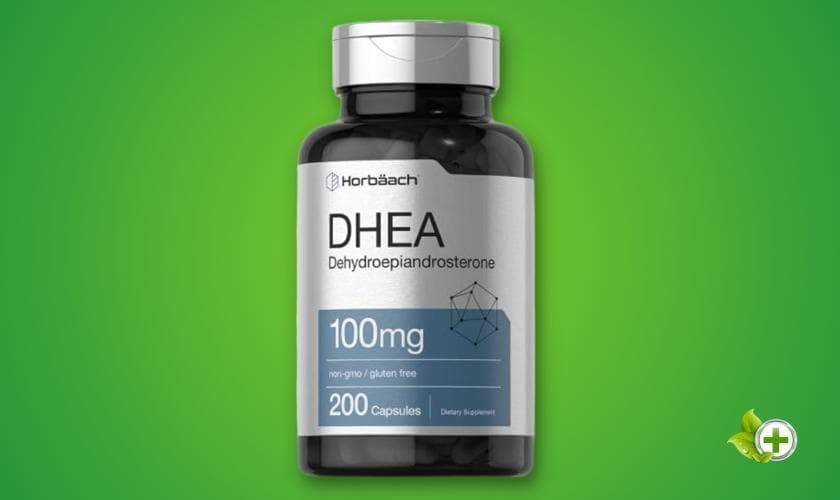
DHEA supplements are often marketed as a way to improve optimal vaginal health. The truth is there is not a lot of research on the effectiveness of oral DHEA supplements for this purpose. However, some older Oxford studies on elderly men have found that they can increase estrogen levels and enhance sexual function.[14]
The fact that DHEA production naturally declines as you get older makes it a potential candidate for supplementing vaginal health. That's because declining estrogen levels can lead to problems such as dryness and decreased lubrication in the vaginal area.
Vaginal administration of DHEA significantly improved female lubrication, reduced dryness, and increased estrogen levels in postmenopausal women. This suggests that DHEA may be an effective way to improve vaginal health in older women.[15]
Intravaginal DHEA (dehydroepiandrosterone) could help with moderate to severe dyspareunia and vaginal dryness, which are both symptoms of vulvovaginal atrophy and the genitourinary syndrome that occur in menopause. While more research is needed, these studies suggest that DHEA may be a beneficial supplement for improving vaginal health and sexual function in postmenopausal women.[16]
Hyaluronic Acid
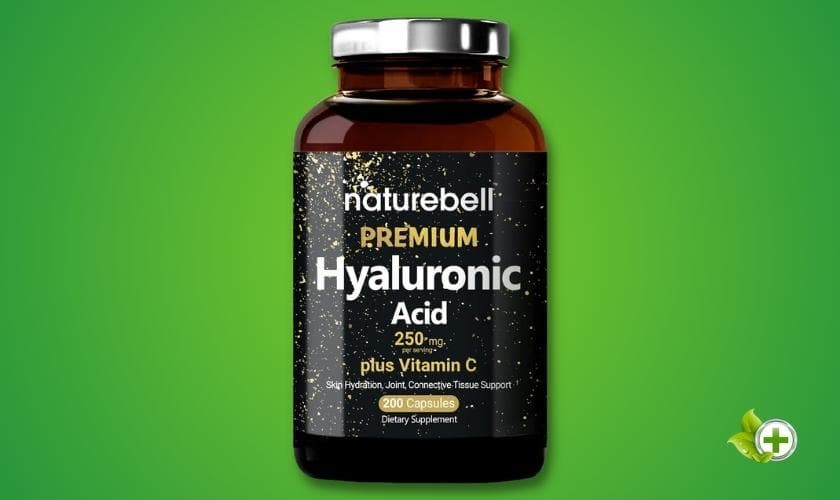
Hyaluronic acid is a component of the body's natural composition. It is found in various tissues, including the skin and the lining of the joints. Hyaluronic acid plays a vital role in maintaining the health of these tissues.
Recently, hyaluronic acid has been studied for its potential benefits for vaginal health. Treatment with 5 mg of hyaluronic acid sodium salt for eight weeks, 42 postmenopausal women with vaginal atrophy experienced improved symptoms.[17]
Additionally, a 2-month ResearchGate study of 28 young women showed that a supplement containing hyaluronic acid and other ingredients like alpha-lipoic acid, glucosamine sulfate, and vitamins C, A, and E improved vaginal dryness. Hyaluronic acid gels or suppositories can raise vaginal lubrication when used independently or in tandem with other substances, such as vitamins A and E.[18] [19]
These products may be a viable choice for women who want to enhance their vaginal health naturally. However, it's always prudent to talk with your healthcare provider before beginning any new supplement or therapy.
Sea Buckthorn Oil

Sea buckthorn oil is a natural oil that is rich in essential fatty acids, including linolic acid. This fatty acid can help strengthen the skin's barrier and protect it from water loss. Sea buckthorn oil is also known for its anti-inflammatory and wound-healing properties.[20]
For women, sea buckthorn oil may play a role in vaginal health. The oil can help to improve vaginal tissue integrity, elasticity, and moisture levels. It may also help to protect against yeast infections and other vaginal health problems.
An NIH study consisting of 116 postmenopausal women suffering from vaginal dryness found that consuming 3 grams of sea buckthorn oil per day for a three months period resulted in significant improvements to the integrity of their vaginal tissue. [21] The study also found that the women saw a decrease in vaginal dryness and increased lubrication. Sea buckthorn oil may be beneficial for women looking for a natural way to improve their vaginal health.
Cranberry Supplements
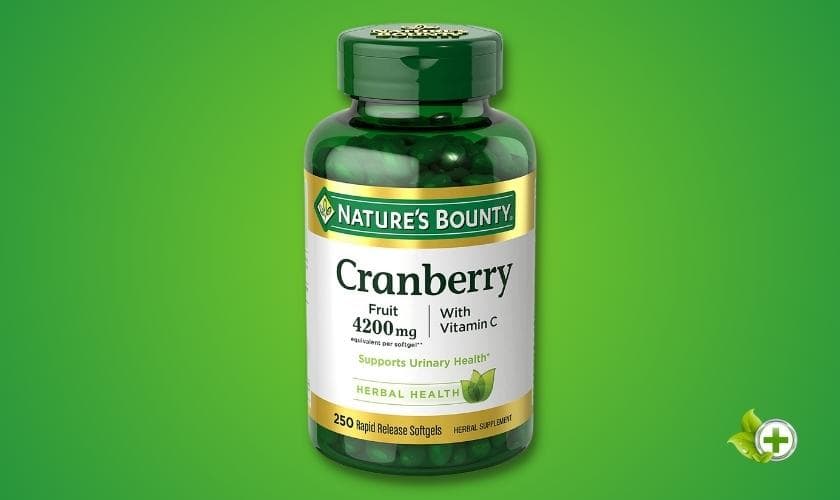
Cranberry supplements are a popular natural remedy for urinary tract health. Tart berries are high in antioxidants and vitamin C, which may help to ward off infection. Cranberry supplements may also help increase urine acidity, making it less hospitable to bacteria. Urinary tract infections are a common problem for women, and recurrent UTIs can be incredibly frustrating.[22]
Some preliminary evidence published at PubMed central suggests that cranberry supplements may help to prevent recurrent UTIs in women. More research is needed to confirm the above findings, but in the meantime, cranberry supplements may be worth a try for women who frequently experience UTIs.[23]
Conclusion
Vaginal dryness and other vaginal health issues can be frustrating and uncomfortable. Above mentioned Vitamins and supplements are studied for their potential benefits and may help improve vaginal health. With the help of these vitamins and natural remedies, women may be able to find some relief and improve their overall well-being.
While focusing on specific vitamins for vaginal health, it's also essential to understand what it means to be holistically healthy. Explore this broader perspective in What Does It Mean To Be Healthy.
FAQ
What Causes Vaginal PH Imbalance?
Vaginal pH imbalance can be caused by various factors, including douching, changes in hormone levels, and certain types of medication or medical treatments. Other potential causes of pH imbalance include poor hygiene, unprotected sex, vaginal infections, and bacterial overgrowth.
What Happens When Your Feminine PH Balance Is Off?
When the pH balance of your vagina is off, it can lead to symptoms such as itching, burning, discharge, and pain. If left untreated, an imbalance in the vaginal pH can lead to infection and further health complications.
References
- PubMed; therapeutic effects of Vitamin E suppositories on vaginal atrophy
- NIH Book; Vaginal Atrophy
- PubMed; Hyaluronic acid and vitamins are effective in reducing vaginal atrophy
- PubMed; The effect of vitamin D and E vaginal suppositories on tamoxifen-induced vaginal atrophy
- PubMed; Effect of Vitamin D on the Vaginal Health of Menopausal Women
- NIH; The effect of vitamin D on vaginal atrophy in postmenopausal women
- IJRCOG; Authenticity of vitamin D in modified vaginal health index in geriatric subjects
- National Library of Medicine; Efficacy of Vitamin C Vaginal Tablets as Prophylaxis for Recurrent Bacterial Vaginosis
- National Institute of Health; Omega-3 Fatty Acids
- Ohio State University; The Effect of Omega 3 Fatty Acids on Atrophic Vaginitis in Breast Cancer Survivors
- NIH; Assessing the effect of omega-3 fatty acid combined with vitamin D3 versus vitamin D3 alone on estradiol levels
- NIH; Is Oral Omega-3 Effective in Reducing Mucocutaneous Side Effects of Isotretinoin in Patients with Acne Vulgaris?
- NIH; Probiotics
- NIH; Vaginal pH Value for Clinical Diagnosis and Treatment of Common Vaginitis
- NIH; Warding Off Recurrent Yeast and Bacterial Vaginal Infections: Lactoferrin and Lactobacilli
- Oxford studies;Biotransformation of Oral Dehydroepiandrosterone in Elderly Men
- NIH; Intravaginal dehydroepiandrosterone (Prasterone)
- NIH; Efficacy of intravaginal dehydroepiandrosterone (DHEA) on moderate to severe dyspareunia and vaginal dryness
- Pubmed; The comparison of hyaluronic acid vaginal tablets with estradiol vaginal tablets
- ResearchGate; vitamins on vaginal dryness in young women
- NIH; Hyaluronic Acid in Postmenopause Vaginal Atrophy
- PubMed; Abundance of active ingredients in sea-buckthorn oil
- NIH; Effects of sea buckthorn oil intake on vaginal atrophy in postmenopausal women




